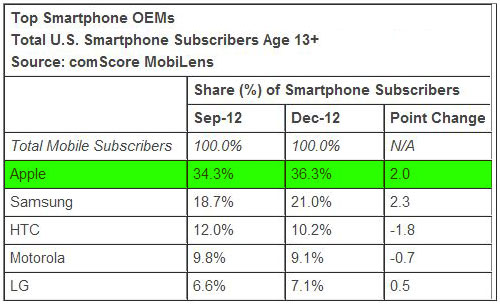
(Image: Colton Witt)
Lately I learned about this person (let’s call her X) who tried to take credit for something I did. X tried to put me down behind my back, saying that I used to be terrible in area B and then tried to claim credit for my success in it today.
It didn’t feel good hearing about this from a third party (let’s call her Y) to whom X told this to. What X didn’t know is that Y is my friend and she promptly told me what X said thereafter. That doesn’t sound like the Celes I know, was Y’s thought when she heard it. She then asked me if this was true.
When I heard what X said, I felt attacked. How many other people could she have told this to? I wondered. Because X is prominent in her field, it creates a “he-said-she-said” type of scenario where it’s questionable as to who’s telling the truth.
As I often say, we cannot change other people. We can only change how we think, feel, and act, and lead by example. Hence, rather than feel angry toward X, I thought about how I could make the best out of the situation instead.
1) Take it as a form of flattery
As the saying goes, “Imitation is the highest form of flattery.” – Charles Caleb Colton
That X would want to take my credit in B, that means she recognizes my ability in it today. Otherwise, why would she want to take my credit? It would have been silly if she thought I sucked in area B and tried to take credit for it; this would only make her look lousy.
Not only that, but X could have taken credit from many other people but she didn’t. Instead, she chose to take credit from me. I imagine people only want to associate themselves with the very best, so if X tried to take my credit in B, that probably means she thinks that I’m doing very well in it today. I can only take that as an affirmation of my ability!
This would be the same if someone tried to take YOUR credit in something. If you’re not good in it, why would people try to take your credit? Take it as praise for your ability, albeit an invisible praise.
2) Look on the bright side
I always believe in seeing the best out of every situation I’m in; this situation is no different. This belief is also in line with principle #4 of my guide on how to be happy.
So putting this principle into action,
- “Geez, someone took my credit in something I worked hard to achieve!” can be turned into “Hey, someone is trying to take my credit. That means I must be doing something right!“
- “I thought X and I were friends. How could she say such things about me?” can be turned into “At least now I know what X has been doing. I should be careful with her the next time.“
- “Someone is trying to tarnish my reputation. I feel so wronged.” can be turned into “I have a ‘reputation’ to be tarnished. That means I’m becoming more important!“
- “X said this to Y. She has probably said this to other people, people who probably don’t know me. These are people who are going to walk away with this wrong image and with whom I can never get the chance to clarify the facts with.” can be turned into “At least I got to clarify the facts with Y. It could have been worse, such as if Y assumed I was such a person and didn’t bother to clarify with me.”
This reframing made me realize that things aren’t as bad as I thought. Actually, I’m pretty lucky to have a friend who looks out for me and bothers to clarify such wrong sayings with me. How many people have friends who do that?
Similarly for you, think about how you can see the bright side of the situation. It’s like seeing a glass as half full rather than half empty, except that it’s not half-empty or half-full — it’s actually 100% full (half with air, half with water). Everything can be positive — it’s just a matter of the lens you choose to view it with. If you choose to see things cynically, then what’s the h*ll point of living? I want you to be happy and it has to first start from your mentality.
3) Be happy you learned the truth
Some people may say that they rather not know things that make them unhappy. However, I see this as avoidance. I always believe that the truth will set you free. It’s the same in this case.
Why do I say that?
Imagine you are an ostrich. A cheetah spots you and sprints towards you, ready to make you his next meal. Do you (a) bury your head into the sand and hope everything will go away, or (b) run for your life?
Most of us will say (b). However, do you know that many of us act like (a) in real life? When we learn about an unpleasant truth, we turn our heads away and pretend we didn’t hear it. We lament about the truth and wish we didn’t know it to begin with.
The problem isn’t that we know the truth; the problem is that the truth isn’t what we want to hear. Hence, rather than fault the truth, we should learn to deal when reality isn’t what we want.
In this case, I was initially not happy to hear the truth because the idea of someone bad mouthing me is infuriating (X said I used to suck in area B which is untrue). Back when I was in primary school, I had a very good “friend” who betrayed me by bad mouthing me. This incident with X opened up childhood wounds which had not been fully healed.
Upon reflection though, I realized it was better that I learned about X’s bad mouthing and credit stealing because it helped me learn about X’s character. Now I know I should not get too close with her or trust her on other matters. I also know that she probably said this about me to some other people, which means I should be more conscious of how I portray myself in front of others in the future.
Check this out while you’re at it: What To Do When You Have Been Betrayed by a Friend
4) Outdo yourself
This is my standard approach when people who take credit for my work at PE.
There have been people/coaches who, after seeing the success of my 30-day courses, started their 30-day or 31-day programs on their websites, some with very similar tasks (originally based on my programs). There have also been plenty of people who copy my articles and claim them as their own or do not give due credit.
I’m never bothered by such replication. Why? Because I know that the content I offer is top-notch and people will have to come to my site to get the best material. I also know that people who copy (without innovating) will always remain followers; they can never be ahead of the pack since they have to wait for others to show their cards before they can do anything.
It’s like how Apple is regarded as the innovator in the technology market, specifically mobile phone devices. It revolutionized the smartphone market in 2007 when it released the world’s first mainstream touchscreen phone (iPhone). Even though brands like Nokia, Samsung, HTC, etc. followed suit with their iterations of the product, Apple is now the market leader for smartphones. People look towards Apple for innovations when you talk about technological devices.
Worth reading: 11 Life Lessons to Learn From Steve Jobs
So someone took your credit. Perhaps other people really think that he/she did the work. How can you outdo yourself then? How can you create something that is even better than what you did?
Take this as a challenge to become better. I always believe we are as good as our last accomplishment. Rather than mope over this unfortunate incident, buckle up and get working on your next big thing such that you can wow people several times over compared to your last accomplishment. As Randy Pausch said, “The brick walls are not there to keep us out; the brick walls are there to give us a chance to show how badly we want something.”
5) Let go of your human ego
The reason why we’re having this discussion is that the human ego is involved. Else none of this would even matter.
Credit or no credit… to be honest, it doesn’t matter in the end. The human form is impermanent. Life is impermanent. Everyone is going to die at some point. Would people stealing your credit matter at that point? Accomplishments are only but a passing moment in time; so is the “stealing” of credit of those accomplishments.
Ultimately, the separation you see between each of us, country and country, male and female, light and dark, etc. is only in the mind. All of us are made up of the same raw ingredients, whether you realize it or not. Atomically, we are made up of atoms whose provenance can be traced back to thousands of different stars in our Milky Way. Elementally, we are made of the same elements as those stars, such as carbon, nitrogen, and oxygen. Spiritually, we are all made of energy. We are all one and the same. We live in this same world. And we are all part of a bigger whole.
Recently I learned of a betrayal by a friend. I wrote about the incident here: What To Do Someone “Stabs” You in Your Back
While I was initially annoyed by it, not the bad mouthing per se but that it was done by someone whom I thought was a friend, I let go of the misdeed after a few hours. Life is too short to get hung up by such petty matters.
Whatever others do is their business. As I said in the opening, I can’t control how others behave, only myself. While I can’t stop people from speaking poorly about me, I can control my actions. I can continue to be a kind person to others. I can focus on doing good in this world. And I can change even the most tainted, tarnished impressions of me by being a better person, one step at a time.
People who are smart will “see” the truth at some point. Those who don’t, well, simply won’t. And that’s fine as well. It’s not my job to please the world. Neither is it your job to do so too.
As Winston Churchill said before,

(Image: Personal Excellence; Photo: Winston Churchill)
Don’t let yourself be bogged down by petty human matters. You have a larger mission in life than to concern yourself with them. As Rene Descartes once said, “Whenever anyone has offended me, I try to raise my soul so high that the offense cannot reach it.” This is a rule that I abide by too.
6) Examine your insecurities
I know this sounds ridiculous, but the reason “stealing of credit” even comes up as an issue is probably that you have insecurities in that area.
For example, the reason X’s comments bothered me initially was that I used to be undeveloped in area B. It was just something I never paid much attention to. Over time I became better in it through deliberate effort, and people began to acknowledge my strength in it through constant praises.
Read: Skills Development
When X tried to claim responsibility for my success in it, I felt that she was taking away the hard work I had put in, and as a natural result, the praises which I had received (even though I wasn’t improving myself in it to be praised). X’s action revealed my “shame” that I used to be bad in this area. It revealed my insecurities surrounding it. It revealed a sore spot which had, all this while, been covered by external praises and acknowledgements but had never been truly addressed.
So what do I do? I examined my insecurities in B. The reason I was insecure in B was that I was rarely praised for it during my childhood; it was only something that I improved in later in life. This lack of praise made me doubtful of my fundamental ability in B, even though I did receive praises later on when I improved my skill in that area.
My resolution was then to (a) accept I used to be undeveloped in area B, and (b) not look upon praises as a validation of my capability in area B. The latter is something I’ve written before in How To Be The Most Confident Person In The World.
Upon doing so, suddenly, it didn’t matter what X said. It doesn’t matter even if there are 10 Xs running around Singapore today telling 100,000 people that I used to terrible in B. I’ve come to terms with my past undeveloped capability in this area and I also acknowledge that I am good in it today, with or without people praising me in it.
Are you fuming that someone took your credit for something? Why? Is there an insecurity unveiled that is causing you to be infuriated? Have you been looking for praise as a validation of your ability in something? Know that insecurities are merely misaligned beliefs to be corrected and praise should never be a prerequisite to feel confident about something.
7) Be smarter next time
So someone took credit for your work this time. Well, that’s fine—learn from this incident and be smarter the next time then.
I generally don’t focus too much on separation-esque measures, such as getting patents, IPs, and the like, but you should protect your rights if there are people trying to copy your work or claim credit over what you have done.
If your project mate took credit for your work, then inform your professor about it so that you can be acknowledged for your effort accordingly. Avoid this person for future projects.
If your colleague took credit for your project, then inform your boss about it. Don’t talk about your new ideas in front of that colleague the next time, at least not before pitching it to your boss.
If your business partner told others that he/she came up with the business idea (when you were the one who did), then take a greater lead over your idea. More importantly, talk to him/her and clarify this. It’s not good to have grievances against someone you have to work so closely with every day.
If a competitor copied your marketing plan or stole your product idea, then do a better job safeguarding your business plans.
If your friend took credit for something you did, then either drop this friend, maintain a cautious approach with him/her, or talk to him/her about it.
Think about your “missteps” this time and learn how you can avoid them the next time. This will prevent similar situations from happening in the future.
Related Reads
- My article 10 Tips To Deal With Daily Setbacks is a great piece on how to deal with daily setbacks, including when people take your credit.
- My happiness guide 10 Timeless Principles To Be Happy is a personal favorite which I encourage you to read as well. There’s also a manifesto version.
Do you have any past experiences where people take credit for your work? How did you handle them? How can you apply the tips above?










 Thanks for reading. If you like my free articles, join my private email list and get my latest updates and articles sent right to your inbox.
Thanks for reading. If you like my free articles, join my private email list and get my latest updates and articles sent right to your inbox.